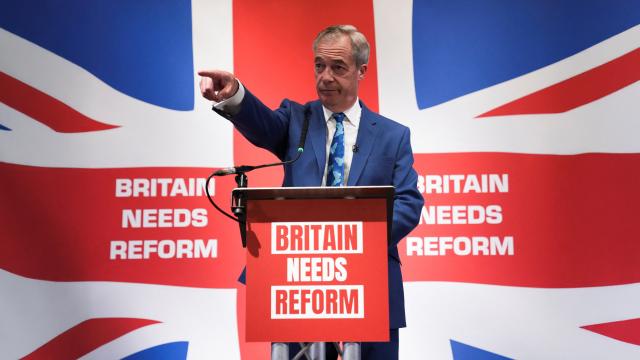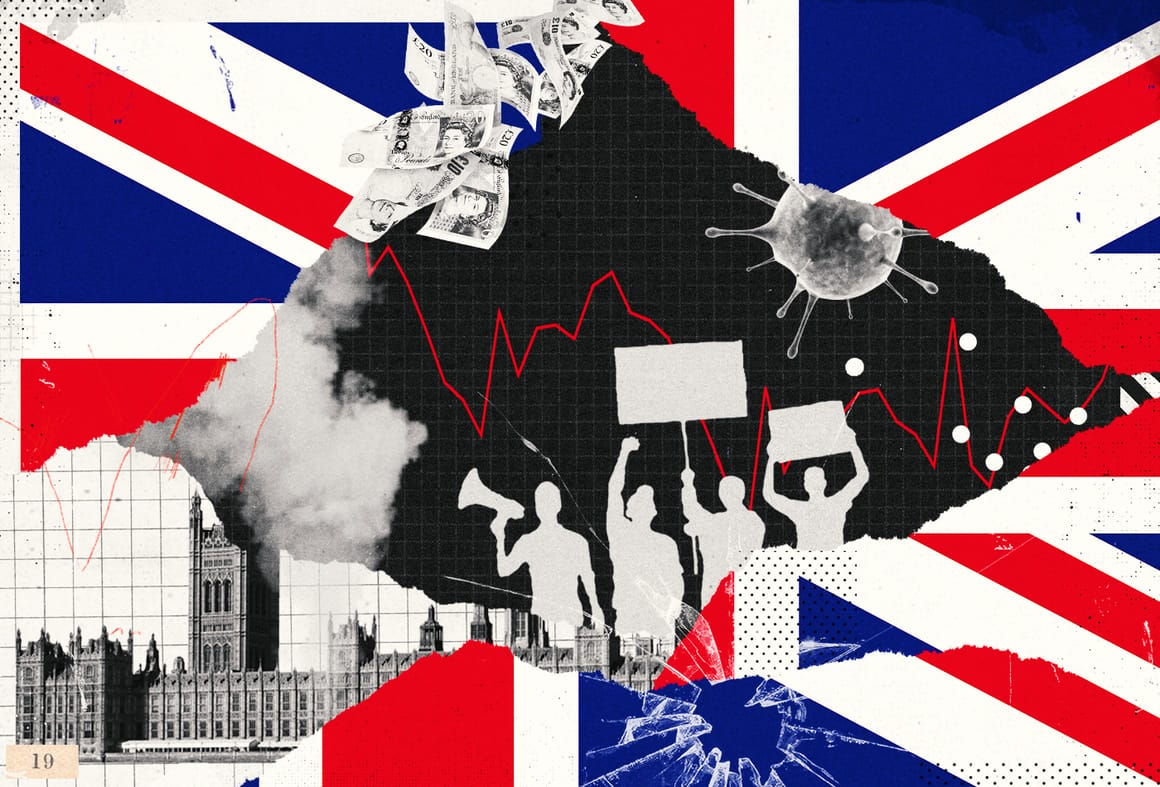
Britain's democratic system appears stable, compared to the many states led by – or under threat from – far-right populists. When Labour won the elections in July, superficially, the prospect of a populist takeover seemed distant. But the façade hides seismic cracks. In a political earthquake, populist and racist Reform Party took 4.1 million votes, coming third, against a backdrop of collapsing living standards and accelerating impoverishment.
Until now, Britain's political system was stable in an unmovable sense, yet not with any connotations connected to positive well-being. These isles are in a state of decay after 46 years of neoliberalism, where social spending is being cut and corporations can exploit and write their own rules to game the system.
This all started with Prime Minister Margaret Thatcher in 1979, who led the murderous charge to push neoliberalism globally. It continued under successive prime ministers, both Conservatives – who led the country for 32 of those 46 years – and Labour.
The inequality driven by neoliberalism creates optimal conditions for populists to increase their popularity, as some of those who are frustrated by the situation see them as an alternative. For context, Labour won last year's elections with 9.7 million votes. Three times more people – 27.5 million – did not vote. Britain's already dysfunctional democracy is under grave threat of morphing into something even worse.
Hopeless new Labour
Facing multiple crises, Labour has never entered office with so little vision. Many of its relatively progressive programs have been watered down or dropped. Chancellor Rachel Reeves has mimicked the noises from the 2010 then new Conservative-led government. She says the money has run out. Cuts and austerity are (still) the order of the day. So far Labour's new austerity includes removing winter fuel support for pensioners, higher student tuition fees, increased bus fares, and not removing cuts to child support by the last government.
The new government is tying all hopes to promoting growth. Globally, in a world facing multiple ecological crises caused by overconsumption, this is madness. Even on their own metrics, Labour's plans do not make sense. The long-term lack of investment in Britain's public services and infrastructure makes the country weaker to economic shocks as investors put their money elsewhere, as economic thinker Grace Blakeley notes.
Furthermore, Labour's strategy faces criticism as economic models suggest they will cause a great deal of pain, especially for the poorest people without any discernible benefits – with disapproval of the plan even made by one of Starmer's previous advisors.
Labour are again big corporations' favourites. An OpenDemocracy investigation entitled “Love-bombed by Lobbyists: How Labour Became the Party of Big Business” explains how, through the revolving door and donations, corporations are steering Labour policies. Former big money Conservatives supporters have changed allegiance like rats on a sinking ship. It seems big business is in power whoever resides in Number 10.
All this means Labour will continue a lite-version of the Conservatives pro-business approach at everyone else's expense. And things are much worse compared to 1997 when Labour last had a turn in government. The National Health Service is collapsing. Work does not pay. The weekly shop is unaffordable. The country faces a housing crisis. One in five Brits live in poverty.
Socially and politically, Britain is a state of despair. Earlier promises to previous generations that life would improve lie deeper in ruins.
In the last 46 years, the Liberal Democrats joining the Conservatives to push neoliberal on steroids – aka austerity – was the only exception to the baton of power solely being passed between the two pro-corporate parties. The absolute lack of political choice was demonstrated when, under PM Jeremy Corbyn's leadership (2015-20), Labour offered alternatives that challenged corporations and the super-rich. This threat to the establishment was overwhelmingly attacked, across the media and even from the right wing of the Labour party.
With an archaic voting system that favours big parties, this stitched-up political system only plays into the populist anti-establishment rhetoric used by Reform and their far-right bedfellows.
Corporate backed Reform
Over the 2024-25 New Years period, there were two major spats surrounding the Reform party. Does the party have more members than the Conservatives? Will Elon Musk bank-roll the party? Most of the news coverage about these two questions focused on the soap opera style clash of personalities; reading between the lines, both issues are about massive shifts in UK party politics.
Reform came third in 2024's election on a Trump-esque platform. Now they are in position to challenge to win the next election and overtake the Conservatives.
Despite Reform's supposed populist anti-establishmentarianism, its leader Nigel Farage comes from an elite background. Throughout his life he has courted and embraced racist ideologues, the far-right and Putin's Russia. As a European Parliamentarian, his party affiliations included the far-right AfD.
In 2016, he was the figurehead for the Brexit movement to leave Europe, which was bankrolled by the usual suspects of corporations funding the hard-right. Before the Brexit vote, Farage was criticised for a poster with similarities to the German Nazis. During the Islamaphobic riots in summer 2024, Farage was criticised for fanning the flames with misinformation.
Whether Elon Musk will support the Reform party financially is an extremely big question mark. Yet already in the 2024 election campaign, Reform received over 4 million votes after receiving £2.3 million from big oil companies and climate deniers. This funding is likely to increase.
Labour pushing a Conservative-lite pro-business politics assists all political opponents, whether socially regressive or progressive. Yet in Britain's broken political system the only party with the money to make headway are Reform. Labour are also helping Reform by continuing to push politics that play into the populist rights hands, not least opening new migrant detention centres and furthering other populist right policies and rhetoric against migrants.
Ironically, it is due to the massive amounts of corporate funding that Reform receives that this new “anti-establishment” political party is a real contender in forthcoming elections.
What happens next is unclear. Britain is far more authoritarian due to the last few Conservative-led governments, including cracking down on human rights across the board, such as the right to protest. The current government has no appetite to undo these policies. There seems little to suggest that under Labour the country will not keep sliding down this path slowly towards populism and racism, where migrants are blamed for the policies paid for and benefiting big business.
Britain politically seems on a far from stable course: away from the dysfunctional failure of liberal democracy towards something far worse. In many places the rise of the populist far-right seemed unlikely, not possible. Then it happened. And now it seems inevitable.














